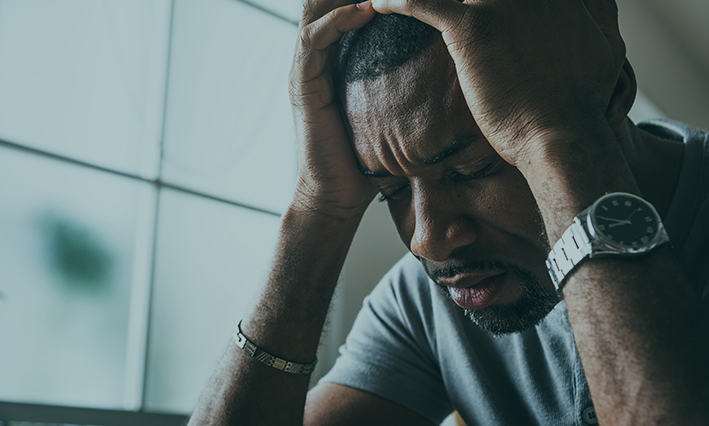How do you define depression?
Depression is a chronic feeling of sadness, leading to a lack of enthusiasm in activities that were once interesting. Depression (depressive disorder) can be classified as a severe medical condition that affects your behaviour and quality of life.
A mixture of negative emotions and confusion can lead to a turbulent lifestyle. As a result, you will find it more comfortable to isolate yourself even more from friends and family. Withdrawal from people, social events, hobbies and interests, in other words, everything that made life-enriching and fulfilling, can lead to a loss of purpose in the world.
Why do I feel depressed?
Depression has many possible causes, and a number of factors can be involved. It could be a specific event like divorce, loss of a loved one, the loss of a job, retirement or an accident. Even with life going quite well, depression can sometimes develop without any apparent reason.
How do I know I am depressed?
There are signs to watch out for when it comes to depression.
Common signs are:
- Moodiness/irritability/anger
- Sleeplessness
- Change in eating patterns
- Tiredness
- Loss of purpose in life
- Feelings of guilt and worthlessness
- Inability to make decisions
- Trouble concentrating
- Physical aches and pains that do not respond to treatment
- Thoughts of death or suicide attempts
Is there a way to test for depression?
Dr Bosman will conduct an interview with you and ask you specific questions to determine whether you are suffering from depression. For instance, he may ask you questions about your mood during the past few days, your view of the future, disappointment in yourself, feeling overly tired, crying more than usual and thoughts of killing yourself.
Furthermore, lab tests cannot diagnose depression but it can rule out other conditions that may be linked to depression.
How can Dr Bosman help?
There are different approaches to the treatment of depression. Cognitive behavioural therapy (CBT) is a therapy concerned with solving present issues to help treat depression. Mindfulness can change your understanding of past events and future predictions. Brainspotting can be very helpful in the treating of depression.
Using EFIT (Emotionally Focused Individual Therapy) may be very effective in helping you move from chaos to order, reactivity to balance and beginning to learn to accept yourself and feel more in charge of your life.
Dr Bosman will help you navigate this difficult journey, allowing you to get one step closer to recovery and normalcy with each session.
What are the costs of untreated depression?
- Addictions to alcohol and illegal drugs
- Poor relationships
- Lack of communication between loved ones
- Physical symptoms such as joint pain, limb pain, back pain, gastrointestinal problems, fatigue, and appetite changes.
Myths about how to deal with depression
- Depression, like anxiety, isn't considered a real illness
- Only women are affected by depression
- Depression is similar to sadness
- Antidepressants can alter your personality
- Having depression means you are weak
- Depression can go away without treatment
- Antidepressants are very addictive


